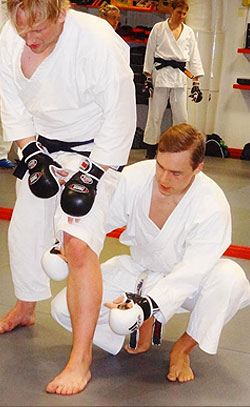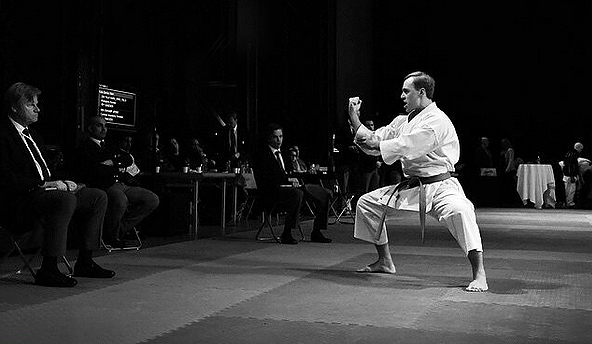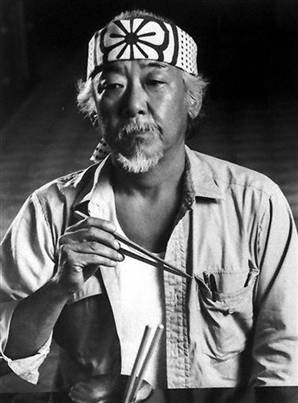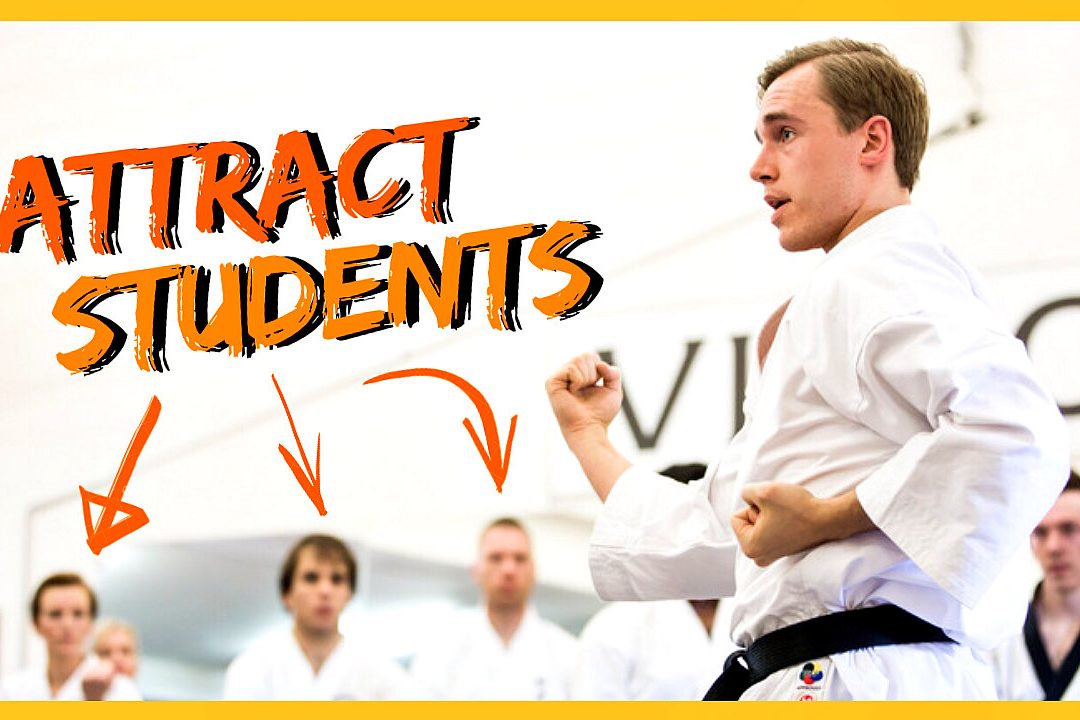
Somebody asked me:
“Do you prefer kata or kumite?”
I replied:
“Do you prefer your left or your right leg?”
He answered; “What a silly question! I need both to be able to walk!”
I said “Exactly.”
[Sound of penny dropping.]
You see, the person who asked me this question was a self-proclaimed “kumite athlete”.
To him, Karate consists of two things:
- kata…
- …or kumite.
That’s it.
In his world, you only do one of them – because those are the competition categories.
Not in my world, bro.
And this is the biggest problem with “Sport Karate”.
Here’s what I think:
Dividing your Karate into only “kumite” or “kata” is artificial and negative for your development as a complete Karate-ka.
Why?
Because kata and kumite promote different attributes, and both are essential.
For example; the timing and distancing of kumite isn’t found in solo kata practice. And the deadly self-defense techniques of kata aren’t found in standard kumite practice.
You need both!
However…
You can definitely have periods for extra focus on kata or kumite.
In fact, I regularly have periods where I focus on kata performance myself. Since I’m in the national team, I’m basically required to do that.
But, don’t get me wrong.
You should never cut off one in favor of the other!
Because that makes you a cripple.

Now, listen to this story…
A few months back I was at a big international tournament.
During the registration, in the hotel lobby, I started small talking with a “kumite athlete” and asked him about his training routine.
I don’t remember what he said, except one sentence that burned in my mind.
“I haven’t practiced a single kata in 2 years.”
When I heard that, I almost choked on my protein bar.
“WHAT!?”
I mean, seriously – can he even call himself a Karate practitioner?
Not in my world.
And that’s my whole point.
You need both legs to climb the mountain of Karate.
Don’t sacrifice a leg for a trophy.
The journey is difficult enough with both legs.
“Karate is a lifetime study.”
– Mabuni Kenwa (1889-1952)



73 Comments